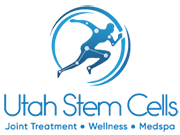Heart failure is a condition in which the heart is not able to pump enough blood throughout the body for its normal function. The cause of this can be either functional or structural disorder of the heart. Common causes of heart failure include cardiomyopathy, hypertension, heart valve problems, and coronary artery disease. There is no cure for heart failure.
With respect to the heart, stem cells have the ability to not only home into the damaged areas but also to initiate a cascade of biological events which both culminate in healing of the heart muscle. For example, animal studies have demonstrated that stem cell therapy will cause new muscle cells to be formed through stimulation of dormant stem cells that are already inside the heart muscle. In these studies, the administered stem cell also transformed into new heart muscle cells.
At Stem Cell Institute, our stem cell treatment protocol for heart failure involves administration of mesenchymal stem cells harvested from human umbilical cord tissue.
Through administration of mesenchymal stem cells, we have observed improvements in heart failure patients treated at our facilities.
The adult stem cells used to treat heart failure at the Stem Cell Institute come from human umbilical cord tissue (allogeneic mesenchymal). These stem cells are expanded at Medistem Panama’s state-of-the-art laboratory.
The mesenchymal stem cells we use are recovered from donated umbilical cords following normal, healthy births. Each mother has her medical history screened and is tested for infectious diseases. Proper consent is received from each family prior to donation.
All umbilical cord-derived stem cells are screened for infectious diseases to International Blood Bank Standards before they are cleared for use in patients.
Only a small percentage of donated umbilical cords pass our rigorous screening process.
- Since HUCT mesenchymal stem cells are immune system privileged, cell rejection is not an issue and Human Leukocyte Antigen (HLA) matching is not necessary.
- The stem cells with the best anti-inflammatory activity, immune modulating capacity, and ability to stimulate regeneration can be screened and selected
- Allogeneic stem cells can be administered multiple times over the course of days in uniform dosages that contain high cell counts.
- Umbilical cord tissue provides an abundant supply of mesenchymal stem cells.
- No need to collect stem cells from the patient’s hip bone or fat under anesthesia, which especially for small children and their parents, can be an unpleasant ordeal.
- There is a growing body of evidence showing that umbilical cord-derived mesenchymal stem cells are more robust than mesenchymal stem cells from other sources.
- No need to administer chemotherapy drugs like Granulocyte-colony stimulating factor (G-CSF or GCSF) to stimulate the bone marrow to produce granulocytes and stem cells and release them into the bloodstream.
Human umbilical cord tissue-derived mesenchymal stem cells (MSCs) that were isolated and grown in our laboratory in Panama to create master cell banks are currently being used in the United States under US FDA regulation.
These cells serve as the starting material for cellular products used in MSC clinical trials for two Duchenne’s muscular dystrophy patients under US FDA’s designation of Investigational New Drug (IND) for single patient compassionate use. (IND 16026 DMD Single Patient).
The body’s immune system is unable to recognize umbilical cord-derived mesenchymal stem cells as foreign and therefore they are not rejected. HUCT stem cells have been administered thousands of times at the Stem Cell Institute and there has never been a single instance rejection (graft vs. host disease). As a matter of fact, allogeneic (not the patient’s own) mesenchymal stem cells are approved to treat graft vs. host disease in Canada and New Zealand.
Umbilical cord-derived mesenchymal stem cells also proliferate/differentiate more efficiently than “older” cells, such as those found in the fat and therefore, they are considered to be more “potent”.

